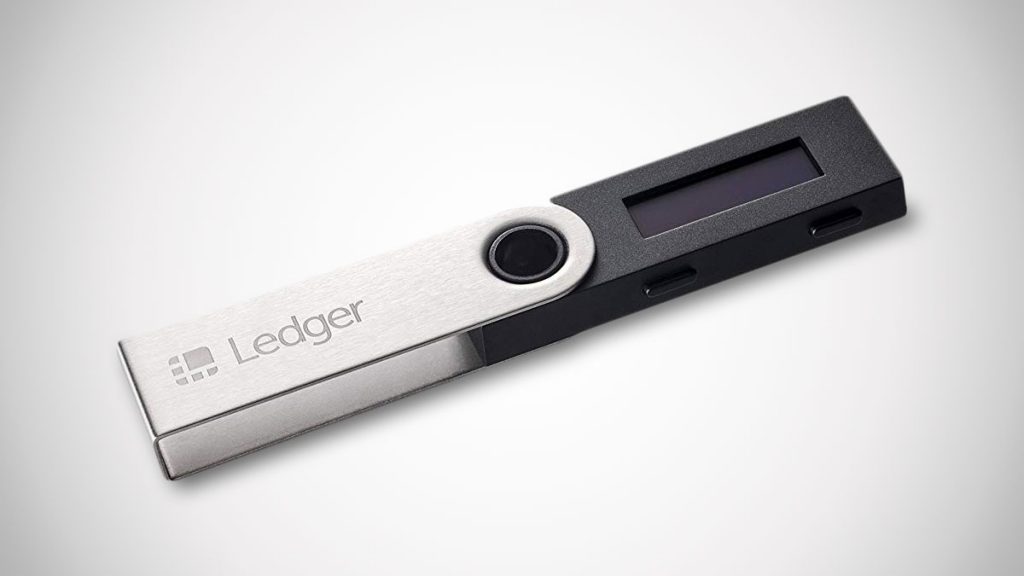When it comes to storing cryptocurrency, you have a lot of options for wallets. The type of wallet you choose depends on the type of cryptocurrency you’re storing and your specific needs. Different wallets offer varying levels of security. Generally, there are two main types of cryptocurrency wallets: hot wallets and cold wallets. Hot wallets are connected to the internet, making them less secure but more convenient for daily transactions. On the other hand, cold wallets are stored offline, providing better security but less accessibility for spending purposes.
Here’s a breakdown of the five most popular types of cryptocurrency wallets, ranked from least secure to most secure. Keep in mind that regardless of the type of wallet you choose, you can always connect it to Crypto Pro’s app to track your portfolio from anywhere.
1. Online/Web Wallets – Hot Wallet
Online wallets, also known as web wallets, operate through your internet browser. If you’ve ever stored credit card information in your browser, you’re already familiar with web wallets. These wallets offer convenience, allowing you to access your cryptocurrency from anywhere with an internet connection. Online wallet providers store your crypto private key on their servers, making it easy for you to manage your cryptocurrency and make transactions.
However, the fact that your private key is stored on a third-party server poses security risks. If the server gets hacked, your information becomes vulnerable. Additionally, some online wallet companies operate on exchanges, which are often targeted by hackers. Therefore, it is advisable to use online wallets for small amounts of cryptocurrency and not for storing large sums.
Pros: Easy to use, convenient for on-the-go transactions.
Cons: Less secure, risk of downloading viruses.
2. Mobile Wallets – Hot Wallet
Mobile wallets are accessed through dedicated apps on your phone, similar to other mobile payment applications like Apple Pay. These wallets are perfect for people who frequently spend cryptocurrency at physical retailers. Mobile wallets offer added security through the use of QR codes.
However, storing a wallet on your phone poses risks. If you lose your phone, you also risk losing your wallet. Additionally, like any other internet-connected application, mobile wallets are susceptible to malware or mobile viruses.
Pros: Easy to use for on-the-go transactions.
Cons: Vulnerable to malware and viruses, risk of losing assets if you lose your phone.
3. Desktop Wallets – Hot or Cold Wallet
Desktop wallets can be either hot or cold, depending on whether the desktop is connected to the internet. These wallets are software packs downloaded directly to your desktop. They provide convenient access to your cryptocurrency through a dedicated program. Desktop wallets offer offline transactions, making them safe from malware and virus threats. Your private keys are not stored on a third-party server, giving you control over your encrypted key.
Pros: Convenient for trading on your computer, safer than online or mobile wallets.
Cons: Less convenient for on-the-go trading, requires regular computer backups.
4. Paper Wallets – Cold Wallet
Paper wallets are considered cold wallets and have mixed reviews regarding their security. To create a paper wallet, you print out your private and public keys. You can then transfer funds to the wallet’s public address, scan the QR code, or enter your private key.
To ensure security, generate your keys while offline and clear your browser history afterward. Running a malware check before generating keys is also recommended. Paper wallets offer enhanced security since they are stored offline. However, utmost care must be taken during the printing process to prevent unauthorized access to your information.
Pros: Not susceptible to hackers, you have control over your keys.
Cons: Printing process can be tricky, loss of printout can result in difficulty accessing your funds.
5. Hardware Wallets – Cold Wallet
Hardware wallets are the most secure option among the five types of wallets discussed. These wallets store your private keys on a separate device, similar to a USB drive. While hardware wallets allow online transactions, they offer the added security of offline storage. The Ledger Nano S is one of the most popular hardware wallets available.
The main drawback of hardware wallets is their cost, which can be significantly higher than other wallet types. However, the increased security and reduced risk of losing your cryptocurrency may justify the upfront investment. Hardware wallets are more suited for storing large amounts of cryptocurrency rather than for frequent transactions on the go.
Pros: Very secure, offers cold storage, ideal for storing significant amounts of cryptocurrency.
Cons: Higher cost compared to other wallet types, less convenient for on-the-go transactions.
Track Your Investment
Regardless of the type of cryptocurrency wallet you choose, you can track your portfolio using Crypto Pro – The all-in-one coin tracker, news, alerts, and more.
Instant Global News is a leading source of up-to-date and insightful news in the crypto world. For more informative articles, visit us at Instant Global News.
FAQs
Q: Which type of cryptocurrency wallet offers the highest level of security?
A: Hardware wallets are considered the most secure option for storing your cryptocurrency.
Q: Are online wallets safe to use?
A: Online wallets are convenient but less secure compared to other wallet types. It is recommended to use them for small amounts of cryptocurrency and not for storing large sums.
Q: Can I use a mobile wallet for online transactions?
A: Yes, mobile wallets allow you to make online transactions, providing convenience and added security through QR codes.
Q: How do paper wallets work?
A: Paper wallets involve printing your private and public keys on paper. They offer offline storage and enhanced security but require careful handling and storage.
Q: Why are hardware wallets more expensive?
A: Hardware wallets have higher costs due to their advanced security features and offline storage capabilities.
Conclusion
Choosing the right cryptocurrency wallet is crucial for safeguarding your digital assets. Whether you opt for the convenience of online wallets, the mobility of mobile wallets, the accessibility of desktop wallets, the offline security of paper wallets, or the top-notch security of hardware wallets, it’s essential to consider your specific needs and the level of security you require. Remember to stay vigilant and take necessary precautions to protect your cryptocurrency investments.





